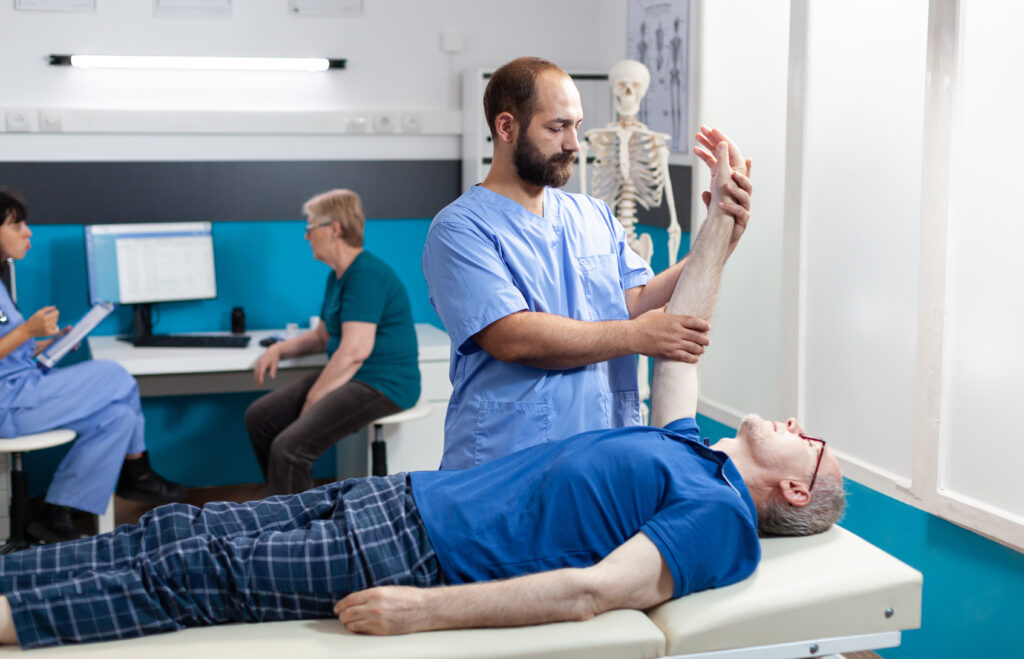Post Surgical Rehabilitation

Post-surgical rehabilitation is a personalized program designed to help you regain strength, mobility, and function after surgery. It’s an essential part of the healing process, promoting optimal recovery and a smooth return to your daily activities.
Benefits of Post-Surgical Rehabilitation:
- Improved Strength and Mobility: Rehab exercises target the muscles weakened by surgery, helping them regain strength and flexibility. This allows for better movement and reduces stiffness.
- Reduced Pain and Swelling: Physical therapy techniques like massage and therapeutic exercises can effectively manage pain and inflammation after surgery.
- Restored Balance and Coordination: Surgery can impact balance, so rehab exercises help retrain the body and improve coordination for safe movement.
- Faster Functional Recovery: A structured rehab program helps you regain your ability to perform daily activities like dressing, bathing, and walking much faster.
- Reduced Risk of Complications: Rehab can help prevent complications like blood clots, pneumonia, and muscle atrophy that can arise from post-surgical inactivity.
- Improved Overall Well-being: Regaining strength and independence can significantly boost your mood and confidence after surgery.
What to Expect in Post-Surgical Rehabilitation:
- Initial Assessment: A therapist will evaluate your condition, surgical procedure, and limitations to design a personalized rehab plan.
- Exercise Program: This will involve targeted exercises to improve strength, flexibility, range of motion, and balance. The program progresses gradually, starting with gentle movements and gradually increasing intensity.
- Pain Management: Therapists use various techniques like manual therapy, electrical stimulation, and modalities like ultrasound to manage pain and promote healing.
- Patient Education: You’ll learn proper posture, body mechanics, and exercises you can perform at home to continue your progress after rehab sessions.
The duration of post-surgical rehabilitation varies depending on several factors:
- Type of surgery: More complex surgeries typically require longer rehab programs.
- Overall health: Individuals with pre-existing conditions may need a more extended rehab period.
- Severity of the surgery: Extensive surgeries may require a more comprehensive rehab program.
Who is involved in Post-Surgical Rehabilitation?
A team of healthcare professionals typically works together to deliver a successful rehab program:
- Physical Therapists: They design and implement exercise programs to improve strength, mobility, and function.
- Occupational Therapists: They focus on helping you regain independence in performing daily activities like dressing, bathing, and self-care.
- Physiatrists (Physical Medicine and Rehabilitation Doctors): They oversee the entire rehab program and may recommend medications or injections for pain management.
- Nurses: They provide support with wound care, pain management, and education on post-surgical precautions.
If you’re facing surgery, remember to discuss post-surgical rehabilitation with your doctor. Early planning and initiating rehab as soon as possible after surgery can significantly improve your recovery timeline and outcomes.
